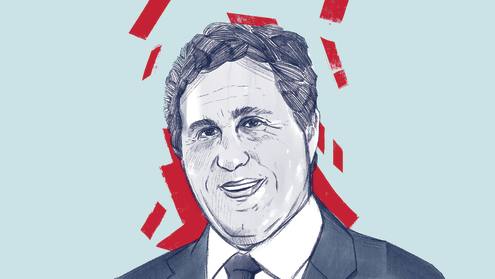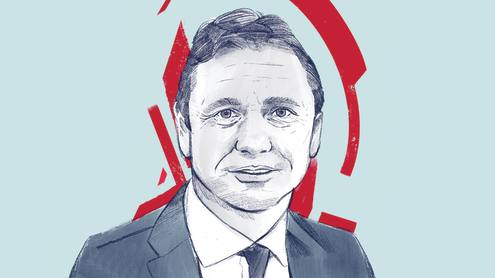Q: How confident are you that Belarus's currency can maintain stability?
A: To ensure the domestic stability of the Belarusian rouble and to maintain its purchasing power, the National Bank of Belarus [NBB] is taking all the measures required to attain the key monetary policy target of slowing down inflation and strengthening the Belarusian rouble.
In view of the complicated foreign economic conditions, the NBB set a target in 2015 for inflation not to exceed 20%. It is important to slow inflation to single digits in the medium term.
As far as the Belarusian rouble exchange rate versus foreign currencies is concerned, the current exchange rate policy does not involve the maintenance of the Belarusian rouble exchange rate at a definite level. It is formed based on the demand and supply in the foreign exchange market, with the NBB’s participation being limited to smoothing sharp fluctuations of the exchange rate.
In the short run, we plan to improve the mechanism of trading and the rules around carrying out interventions with a view to further minimising the NBB’s participation in the establishment of the exchange rate. The rouble's external stability will depend on the country's macroeconomic policy, its balance of payments position, as well as its fiscal policy. The NBB will limit money supply in order to support the stability of the national currency.
[We are increasingly confident that the joint efforts] of the NBB and the government, aimed at ensuring macroeconomic stability and bringing down inflation in the country, [will be] successful.
Q: How would you describe the current monetary policy of Belarus? And what are its aims?
A: The maintenance of price stability as the basis for sustainable economic development, [along with improving] confidence in the national currency, remains the main objective of the NBB’s monetary policy. The NBB has put in place a mechanism to achieve its inflation target and is switching to monetary targeting. Thus, the impact on prices will occur directly by means of a quantitative restriction of the money supply.
The growth of a broad money supply is a key target of our monetary policy. According to our assessments, particularly with regards to the exchange rate adjustment at the beginning of the year, the growth of a broad money supply totalling no more than 30% [between December 2014 and December 2015] will make it possible to achieve the planned level of inflation.
In turn, achieving our money supply targets will be done through the control of the monetary base. It should be noted that this is in full conformity with the assessments and recommendations of the International Monetary Fund technical mission.
Q: What can we expect with regards to interest rates and inflation? What is the outlook for the next few months?
A: For the purpose of stabilising the situation in the financial markets at the end of 2014 and the beginning of 2015, the rates of the NBB’s instruments were increased, which resulted in an adequate increase in interest rates.
We expect that a balanced macroeconomic and tough monetary policy will bring gradual decreases in interest rates in the medium-term to a level that barely exceeds inflation. Maintaining positive levels of interest rates in real terms remains a priority within the NBB.
With regards to inflation, current consumer prices are growing within the target parameter for 2015. The growth of consumer prices is expected to total no more than 6% in the first quarter of 2015, and about 17% on an annualised basis.
Q: What would you say to reassure investors about the stability of Belarus from a monetary perspective?
A: The NBB pursues a monetary policy that is aimed at attaining our inflation target. Despite considerable external shocks in 2014, the NBB managed to promptly calm the situation in the foreign exchange market and the banking sector, and then adapted a monetary policy to take into account the changed conditions.
Our adjusted exchange rate policy will act as a stabiliser with regards to external shocks, whereas the monetary aggregates will target lending and are aimed at decelerating inflation. The NBB pays close attention to providing a sustainable and safely functioning banking sector.
All of this means that the NBB’s monetary policy will be streamlined on an ongoing basis to ensure macroeconomic stability and create the necessary conditions for the well-balanced development of the Belarus economy. In the medium term, our monetary policy will evolve towards inflation targeting.
The attainment of our stated objectives alongside the government’s economic measures directed towards structural reform will increase the attractiveness of the Belarusian economy to investors.
Pavel Kallaur is the chairman of the board of the National Bank of Belarus.











